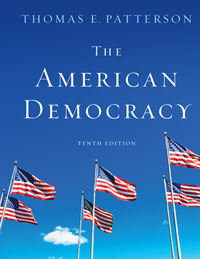| appellate jurisdiction | The authority of a given court to review cases that have already been tried in lower courts and are appealed to it by the losing party; such a court is called an appeals court or appellate court.
|
 |
 |
 |
| brief | A written statement by a party in a court case that details its argument.
|
 |
 |
 |
| concurring opinion | A separate opinion written by one or more Supreme Court justices who vote with the majority in the decision on a case but who disagree with its reasoning.
|
 |
 |
 |
| decision | A vote of the Supreme Court in a particular case that indicates which party the justices side with and by how large a margin.
|
 |
 |
 |
| dissenting opinion | The opinion of a justice in a Supreme Court case that explains his or her reasons for disagreeing with the majority’s decision.
|
 |
 |
 |
| facts (of a court case) | The relevant circumstances of a legal dispute or offense as determined by a trial court. The facts of a case are crucial because they help determine which law or laws are applicable in the case.
|
 |
 |
 |
| judicial activism | The doctrine that the courts should develop new legal principles when judges see a compelling need, even if this action places them in conflict with precedent or the policy decisions of elected officials.
|
 |
 |
 |
| judicial conference | A closed meeting of the justices of the U.S. Supreme Court to discuss and vote on the case before them; the justices are not supposed to discuss conference proceedings with outsiders.
|
 |
 |
 |
| Judicial restraint | The doctrine that the judiciary should closely follow the wording of the law, be highly respectful of precedent, and defer to the judgment of legislatures. The doctrine claims that the job of judges is to work within the confines of laws set down by tradition and lawmaking majorities.
|
 |
 |
 |
| judicial review | The power of courts to decide whether a governmental institution has acted within its constitutional powers and, if not, to declare its action null and void.
|
 |
 |
 |
| jurisdiction (of a court) | A given court’s authority to hear cases of a particular kind. Jurisdiction may be original or appellate.
|
 |
 |
 |
| living constitution theory | A method of interpreting the Constitution that emphasizes the principles it embodies and their application to changing circumstances and needs.
|
 |
 |
 |
| majority opinion | A court opinion that results when a majority of the justices are in agreement on the legal basis of the decision.
|
 |
 |
 |
| opinion (of a court) | A court’s written explanation of its decision, which serves to inform others of the legal basis for the decision. Supreme Court opinions are expected to guide the decisions of lower courts.
|
 |
 |
 |
| original jurisdiction | The authority of a given court to be the first court to hear a case.
|
 |
 |
 |
| originalism theory | A method of interpreting the Constitution that emphasizes the meaning of its words at the time they were written.
|
 |
 |
 |
| plurality opinion | A court opinion that results when a majority of justices agree on a decision in a case but do not agree on the legal basis for the decision. In this instance, the legal position held by most of the justices on the winning side is called a plurality opinion.
|
 |
 |
 |
| precedent | A judicial decision that serves as a rule for settling subsequent cases of a similar nature.
|
 |
 |
 |
| senatorial courtesy | The tradition that a U.S. senator from the state in which a federal judicial vacancy has arisen should have a say in the president’s nomination of the new judge if the senator is of the same party as the president.
|
 |
 |
 |
| writ of certiorari | Permission granted by a higher court to allow a losing party in a legal case to bring the case before it for a ruling; when such a writ is requested of the U.S. Supreme Court, four of the Court’s nine justices must agree to accept the case before it is granted certiorari.
|





